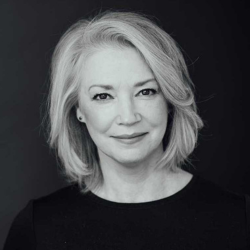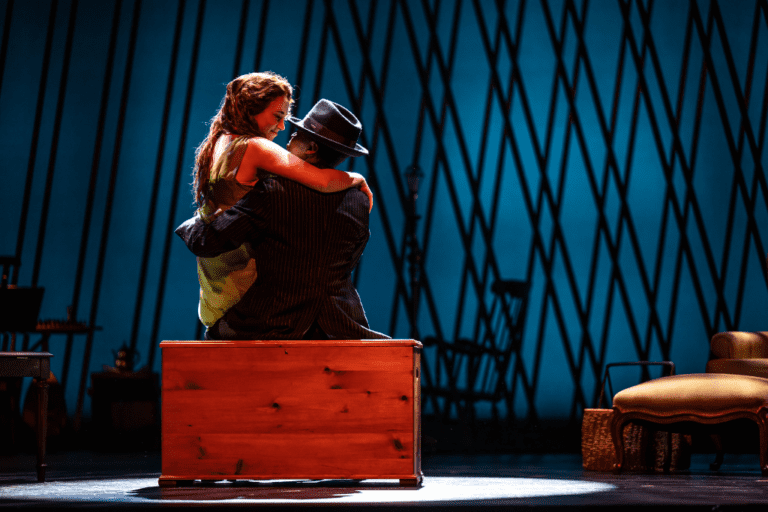‘The Community We’ve Never Had’: Investigating Power in Performance with AACE
How can an actor know that a coach they might hire is a qualified industry professional? Moreover, how can they know that any coach will create a safe, respectful working environment for learning? Much has been written about the unique power dynamics in acting training classrooms and the histories of abuses within these spaces. Industry standards of practice in the performing arts are rapidly changing in response to revelations through the #MeToo and #BlackLivesMatter movements (and others). What responsibility do acting coaches have to ensure their own training practices are in line with current approaches? What resources are available for actors to assess the credentials of an acting coach?
The newly-formed Association of Acting Coaches and Educators (AACE) is addressing these concerns.
Scholar, writer, educator, and postdoctoral researcher Sarah Robbins interviewed AACE’s two co-administrators — Jennifer Wigmore, actor, painter, writer, educator, and activist, and Theresa Tova, actor, singer, writer, producer, ACTRA Toronto past president, ACTRA national treasurer, and chair of the Entertainment Industry Coalition (EIC) — about the industry’s need for an association for acting coaches and educators.
SR: The theme of the upcoming inaugural Association of Acting Coaches and Educators (AACE) Conference is “Power: Evolving Dynamics.” Before we get into the association itself, can you share why you created AACE and why it’s important to you?
TT: Like so many other young women, I endured four years of fear, threats, and sexual impropriety from my professors during my BFA training and never felt that I had any power to voice my concerns. When one of my fellow students did assert themselves, they were thrown out of the program for doing so. As a #MeToo survivor and union leader, the reality of misogyny and harassment in our industry is all too real. We’ve heard too many reports of abuse in the self-tape and coaching environment. Organizing an association with a code of conduct and guidelines was a much needed next step.
JW: So much has changed in the last seven years. Concepts that weren’t even considered before have made their way into the acting classroom: mental health, harassment, abuse of power, gender diversity, inclusion, intimacy, and consent… the list goes on. I became an activist in this area because of my own experiences after #MeToo, and the ways in which abuse of power has affected me, and then in turn, how I have used my power to affect others.
SR: What is AACE and why was it formed? Why is it needed in the Canadian performing arts industry?
JW: AACE — the Association of Acting Coaches and Educators — is an industry-supported, volunteer-run association for acting coaches and educators dedicated to respect-based training. At the heart of any healthy student/teacher relationship is recognizing the evolving dynamics of how power flows. It’s up to us, as coaches and educators, to continually interrogate our relationship to power so that we can always foster learning environments that respect the individual.
When Got Your Back (GYB) started hosting “living room” conversations about what was happening to female-identifying artists in the performing arts, many of us were having these conversations for the first time. We quickly realized that the issues happening in our rehearsal halls, performance spaces, and on our sets, were also happening in the studios and schools. We needed to find a way to change that.
In 2019, GYB ran a survey to put data behind the anecdotal evidence that was emerging in these conversations. Not only did that quantifiable data from over 500 participants prove that all the anecdotal evidence was true, but it was clear that there are pervasive patriarchal and colonial systems that perpetuate abuses of power at every level, whether it be university, college, or private studios.
TT: ACTRA Toronto created an ad hoc Sexual Harassment Committee made up of #MeToo survivors to address the growing need to change the culture of misogyny on our sets. The committee consulted with ACTRA Toronto on anti-harassment language in our negotiated agreements, improved internal complaint policies, and encouraged educational components on sets where safety meetings would also address mental health and bystander training. With our input, the Creative Industries Coalition also recognized that addressing power imbalances of diversity and gender and education would be the key.
JW: It has been difficult to address because there is a gap in the industry when it comes to acting teachers: we don’t have a collective agreement, a union, best practices, a code of conduct, or any sector-specific training. That’s why it was important that ACTRA Toronto became the engine that started AACE, and they brought other industry partners to the steering committee — the Talent Agents & Managers Association of Canada (TAMAC), EIC, Casting Directors of Canada (CDC), Canadian Actors Equity Association (CAEA), and other grassroots organizations — to start the conversation on how we fix things together. The industry needs AACE almost more than the acting coaches themselves. Students and the parents of young actors need AACE so they can have some baseline with which to choose a coach.
AACE built a code of conduct and guidelines, then introduced them to the community. The mandate of AACE is to educate the educators on these sector-specific areas of respect: it’s been a slow process, but an inspiring one.
SR: It seems that a unifying theme here is stemming from a previous lack of articulated boundaries of what is and is not work in acting training classrooms. I’m curious how the two of you feel about the role of boundaries in acting training as you understand it, being coaches?
JW: One of the most exciting things that came out of the open discussions around abuses of power were the conversations surrounding intimacy and consent and the industry’s acknowledgment of intimacy coordination and direction. Consent permeates everything we do as acting educators, and understanding how consent works in acting training was one of the things that I needed to wrestle with in my role as an educator. I’ve taught first-year acting students for over a decade, and use improv as a training tool. How do you encourage students to go right up to the line of being uncomfortable without feeling unsafe? Because sometimes being uncomfortable is part of our job as actors, we need to teach that safely and create rooms that are built on trust so that consent can exist.
TT: And consent is ongoing.
It’s complicated in acting classes. It’s nuanced. Scene partners have to have a conversation about consent every time. Every scene, every interaction can be different for different people. Acting students need to know that they can remove themselves from any situation if it feels bad for them, while recognizing it may not be bad for everyone else. It’s a personal thing. And you can’t be afraid to protect yourself as a student, and to say if it doesn’t feel right for you. As an instructor, I don’t even need to know why. I respect that. Let’s find another way in. Give the students agency over their work.
SR: AACE was born out of a need for clearer protections for performing artists at both training and industry career stages. How does AACE plan to do this?
JW: I think it’s time that we as an industry have some minimum standards for our acting coaches and educators. This will safeguard the next generation from the mistakes we’ve made.
Teachers have never been more scared. As educators we must be asking, what is the importance of the scenes we pick, and who plays them? What are the boundaries of appropriate relationships with students? How do I reinforce that informed consent matters more than saying yes? Sometimes it feels like a minefield, not knowing where to tread, and realizing that even treading lightly, with extreme caution, might blow you up. Many teachers are leaving the profession. There is a trepidation in teaching that I have never seen before because mistakes are no longer just mistakes: they can be career ending. But how do we allow for coaches to re-educate themselves, or in some cases, receive the training they never received?
I can find loads of anti-harassment and EDI training for the corporate workplace or institutional environment, but nothing specific to the acting classroom. AACE is trying to provide coaches with this sector-specific training.
TT: Organizing individual coaches and educators into a voluntary association that builds community guidelines and standards is vital. Instead of working in silos, through the AACE community, coaches can now learn from each other. We can never ensure that a coach is the best coach for you, but through educating educators we can ensure that they are immersed in the important conversations of the day, and that they have taken relevant training and are aware of the challenges and protections demanded in today’s changing work environment.
SR: What hopes do you have for the future of AACE?
TT: In some ways the future is already here. This week we heard from a coach who wanted to rent space in a theatre for their classes. The theatre told them they wouldn’t rent to anyone who wasn’t an AACE member. We are buoyed by the warm welcome AACE has found in the industry. Agents, casting directors, unions, associations and schools are signing on to a statement of support committing to promoting and working with respect-based AACE coaches in the future.
JW: Eventually, I hope that AACE will become the baseline for professional acting teaching, the industry standard for hiring and will make acting training safer for everyone, but AACE is more than just a minimum standards idea. It’s built on the foundation of education and sharing knowledge. But mostly I hope that AACE will become the community that we’ve never had.
The inaugural 2023 AACE Conference, “Power: Evolving Dynamics,” takes place at Toronto’s Tarragon Theatre May 20 and 21, 2023. To find out more and register to attend, click this link.











Comments